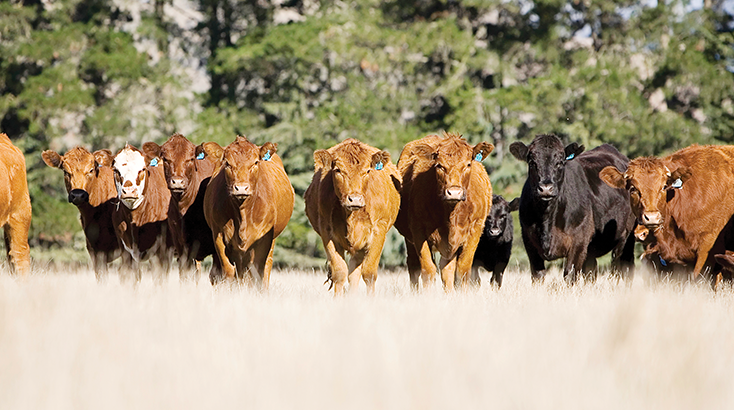New international studies have reiterated the vital role of animal protein in human diets, the environment and society.
A series of nine research papers under the title The Societal Role of Meat – What the Science Says authored by international scientists and published in Animal Frontiers argues that in addition to the nutritional and environmental benefits, animal agriculture is also key to the challenges around climate change and global food security.
“Our papers … are much more than just important pieces of scientific works to be discussed among industry advocates,” said Dr Rod Polkinghorne, a leading innovator in the Australian red meat industry.
“We want this major new analysis to inform public policy and education around meat production and consumption globally.”
A second study, compiled for the Food and Agriculture Organisation (FAO) of the United Nations, found that globally more than 1 billion people depend on livestock for their livelihoods.
The study, the Contribution of Terrestrial Animal Source Food to Healthy Diets for Improved Nutrition and Health Outcomes, says that food from livestock contributes to healthy diets by improving nutrition and health.
The authors of the Societal Role of Meat study focused on the role of meat in a meaningful diet, its nutrient contribution and the risks from a large reduction in meat consumption.
The researchers say Homo sapiens evolved to be persistent and frequent meat eaters, from which they assume meat is at least compatible with human anatomy and metabolism.
“Moreover, given that meat represents a high-quality food matrix for digestibility and absorption of a broad spectrum of nutrients, several of which being already limiting factors in diets worldwide, it seems fair to state that the dietary role of meat is not straightforward to replace,” the study says.
It says people with little access to meat tend to suffer from the health problems associated with low intake of specific micronutrients or from deficient quality protein intakes.
“To sum up, the regular consumption of meat appears to bestow multiple and important nutritional benefits.”
Expanding animal production is the most readily available way to nourish the world, but meat, milk and eggs must be affordable, it says.
The scientists also sought to determine whether livestock systems consume more resources at the expense of sustainable ecosystems.
While that depends on the desired end state, they conclude that the goal should be an ecosystem that can be reasonably stabilised, with remaining biodiversity sustained and, ideally, improved.
Livestock have a role in plant-based production for human-edible food, consuming the inedible biomass byproduct and returning nutrients back into the natural cycle.
“In short, human-managed livestock systems must be part of the solution to environmental sustainability.”
They say that livestock farming is ethically acceptable given the nutritional benefits to humans.
“As long as there are human mouths to feed with meat and no better alternative in sight, then humans enjoy clear ethical priority over the animal,” the study says.
More than $US1 billion ($1.63bn) is being spent on cell culture technology to produce food products equivalent to meat that can close the global nutrient gap.
The scientists say success is still far off despite decades of research.
The FAO report finds that animals farmed on grazing and pastoralist systems and those that are hunted provide high-quality proteins, important fatty acids and various vitamins and minerals, which contribute to healthy diets and improved nutrition and health.
“Livestock species are adapted to a wide range of environments, including areas that are unsuitable for crop production,” the report says.
Livestock also plays a role in landscape management, providing energy and helping to improve soil fertility and transform grassland vegetation into food.
But to be sustainable, the researchers say, solutions need to be found to livestock’s high resource use, pollution, food-feed competition, greenhouse gas emissions, antimicrobial resistance, animal welfare, disease, accessibility and consumer affordability.










